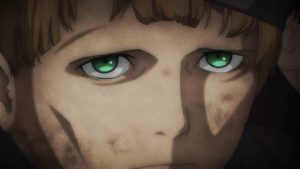 There’s been some discussion since Episode 2 about just who the “patriot” in this series’ title is. I think after this week’s follow-up it seems very likely that it refers in fact to Albert, not William – though it’s too early to say for sure, and it may not even matter all that much. The events here indicate pretty clearly that we’re about to head into the more “familiar” (i.e. Holmsian) part of the story. And there’s no question it’s William who occupies the role we traditionally associate with Professor Moriarty in the Doyle universe.
There’s been some discussion since Episode 2 about just who the “patriot” in this series’ title is. I think after this week’s follow-up it seems very likely that it refers in fact to Albert, not William – though it’s too early to say for sure, and it may not even matter all that much. The events here indicate pretty clearly that we’re about to head into the more “familiar” (i.e. Holmsian) part of the story. And there’s no question it’s William who occupies the role we traditionally associate with Professor Moriarty in the Doyle universe.
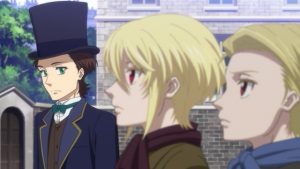 There’s a certain irony in the fact that this all starts with an act of noblesse oblige, which is what passed for altruism among the Victorian upper classes. The matriarch of the Moriarty household can have had no idea of just how right she was when she protested at the danger this pair of urchins presented to the family. These people are caricatures to an extent that I don’t think flatters the storytelling, especially William (the original) and the mother – though of course monsters like them certainly did (and do) exist.
There’s a certain irony in the fact that this all starts with an act of noblesse oblige, which is what passed for altruism among the Victorian upper classes. The matriarch of the Moriarty household can have had no idea of just how right she was when she protested at the danger this pair of urchins presented to the family. These people are caricatures to an extent that I don’t think flatters the storytelling, especially William (the original) and the mother – though of course monsters like them certainly did (and do) exist.
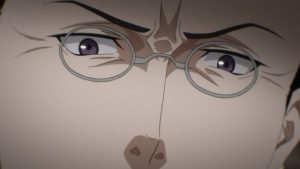 Of more interest – and perhaps more vexing – is Albert. One can’t help but wonder how a young man in his position would have come to hold the views he does. It seems very unlikely Albert would have been exposed to revolutionary thinking at the schools he attended, or from the friends he was allowed to associate with. How did this boy come to loathe his family so much that he would be willing to murder them in the name of social upheaval? It seems unlikely, even as loathsome as they are. Perhaps he was simply born with an overactive sense of justice – a one in a million shot given his genetics and background.
Of more interest – and perhaps more vexing – is Albert. One can’t help but wonder how a young man in his position would have come to hold the views he does. It seems very unlikely Albert would have been exposed to revolutionary thinking at the schools he attended, or from the friends he was allowed to associate with. How did this boy come to loathe his family so much that he would be willing to murder them in the name of social upheaval? It seems unlikely, even as loathsome as they are. Perhaps he was simply born with an overactive sense of justice – a one in a million shot given his genetics and background.
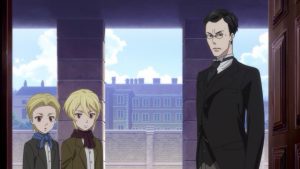 What can’t be argued is that his family is pretty awful, especially his brother – who’s cartoonishly so. A little more nuance wouldn’t have come amiss here in my view, but William being as venal as he is certainly allows the story to steam ahead quickly. We’ve already seen how ruthless William (the adopted) could be in pursuit of justice as he sees it. But truly it’s Albert who comes off as the sociopath here, because he sees in William the opportunity to free himself of the curse he views his family to be.
What can’t be argued is that his family is pretty awful, especially his brother – who’s cartoonishly so. A little more nuance wouldn’t have come amiss here in my view, but William being as venal as he is certainly allows the story to steam ahead quickly. We’ve already seen how ruthless William (the adopted) could be in pursuit of justice as he sees it. But truly it’s Albert who comes off as the sociopath here, because he sees in William the opportunity to free himself of the curse he views his family to be.
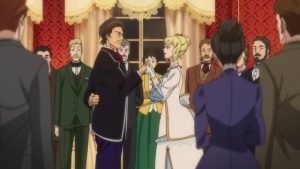 There’s no quarter asked and none given between these two, and not a qualm between them. William knows he’s been invited into the Moriarty home for a reason, and he suspects what the reason is. For William this is a test to see how serious Albert is about what he says he wants to accomplish – for Albert an opportunity to make the impossible possible. As vile as they are, what Albert does – under William’s direction – is brutal. The twist of that stake in his brother’s belly was not subtle in its symbolism. Albert was enjoying himself.
There’s no quarter asked and none given between these two, and not a qualm between them. William knows he’s been invited into the Moriarty home for a reason, and he suspects what the reason is. For William this is a test to see how serious Albert is about what he says he wants to accomplish – for Albert an opportunity to make the impossible possible. As vile as they are, what Albert does – under William’s direction – is brutal. The twist of that stake in his brother’s belly was not subtle in its symbolism. Albert was enjoying himself.
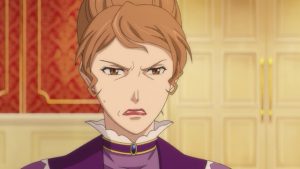 What of Louis, the third wheel on this unlikely cart? We’ve yet had little insight into his nature, either as boy or man. We know he’s loyal to his blood brother, we know he’s been suffering from some sort of illness that Moriarty’s money was used to treat via surgery. And we know from his actions in the aftermath of the fire that he’s no shrinking violet. We know he supports his brother absolutely, and in the aftermath of the fire he seems to consider his stepbrother worthy of his loyalty as well. But does he bring anything to the table beyond that – a perspective on what those two believe that’s distinct from theirs? Maybe – but not that we can point to as yet.
What of Louis, the third wheel on this unlikely cart? We’ve yet had little insight into his nature, either as boy or man. We know he’s loyal to his blood brother, we know he’s been suffering from some sort of illness that Moriarty’s money was used to treat via surgery. And we know from his actions in the aftermath of the fire that he’s no shrinking violet. We know he supports his brother absolutely, and in the aftermath of the fire he seems to consider his stepbrother worthy of his loyalty as well. But does he bring anything to the table beyond that – a perspective on what those two believe that’s distinct from theirs? Maybe – but not that we can point to as yet.
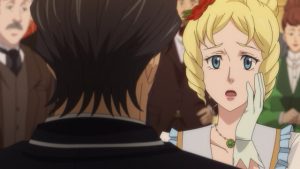 Now the story proper begins, seemingly – we’ve had an anime-original introduction to the premise, and a canon origin story. Durham is a place that will be familiar to any Doyle fans – Moriarty is said to be a professor at Durham University. That means Holmes and his circle (though they spend most of their time in London) are likely to make their entry into the narrative very soon. And it’s their role that remains the most intriguing mystery in Yuukoku no Moriarty. To say that the moral outlook of this series is cloudy is an understatement, and that’s not something I expect to change when Holmes becomes part of the story.
Now the story proper begins, seemingly – we’ve had an anime-original introduction to the premise, and a canon origin story. Durham is a place that will be familiar to any Doyle fans – Moriarty is said to be a professor at Durham University. That means Holmes and his circle (though they spend most of their time in London) are likely to make their entry into the narrative very soon. And it’s their role that remains the most intriguing mystery in Yuukoku no Moriarty. To say that the moral outlook of this series is cloudy is an understatement, and that’s not something I expect to change when Holmes becomes part of the story.


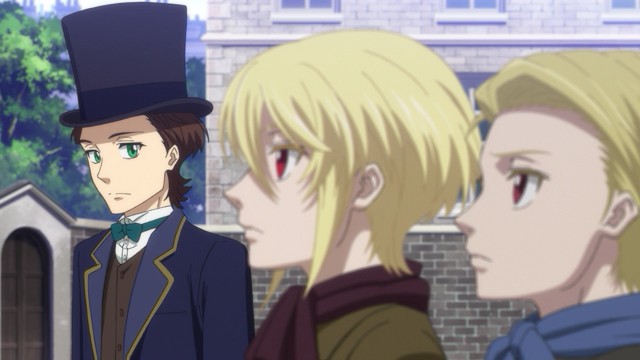
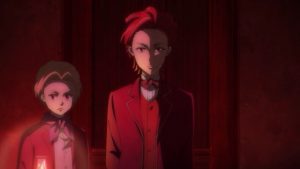
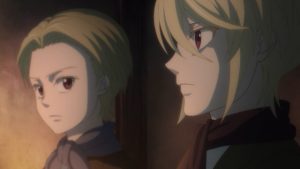

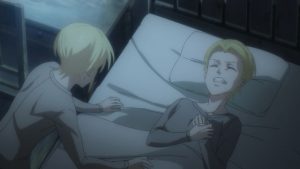
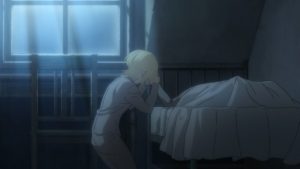
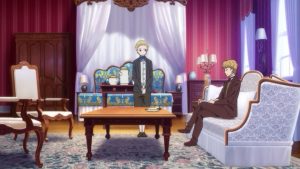
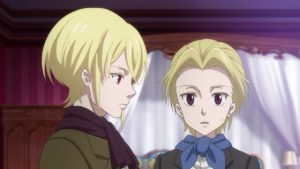
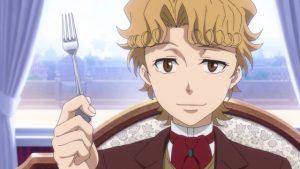
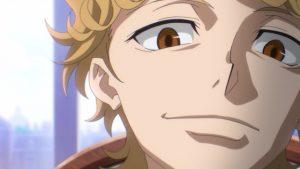
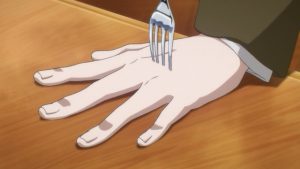
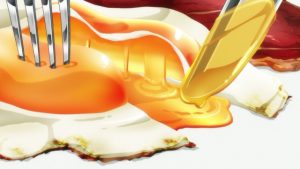
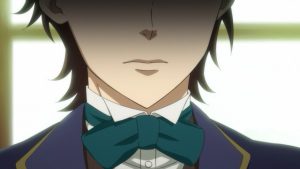
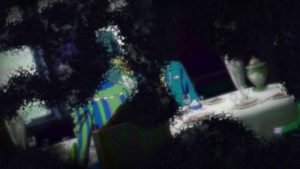
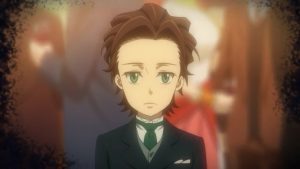
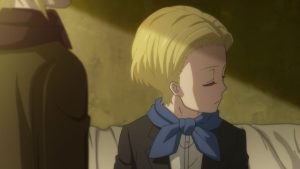
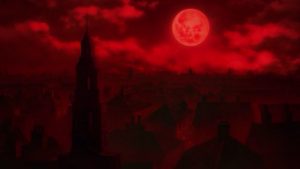
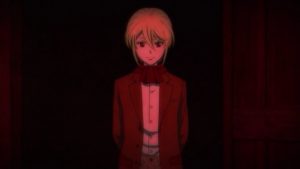
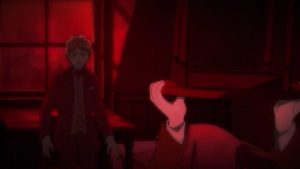
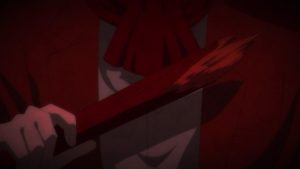
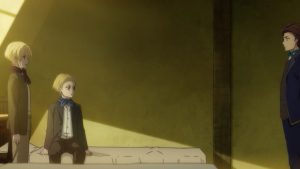
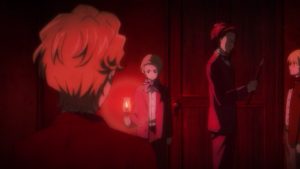
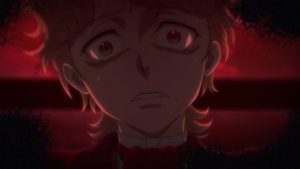
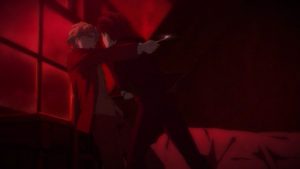
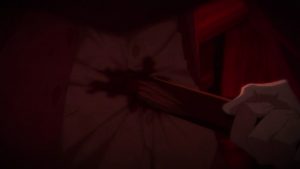
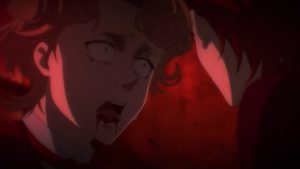
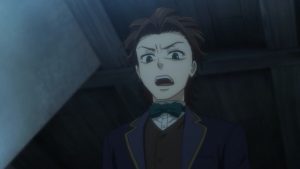
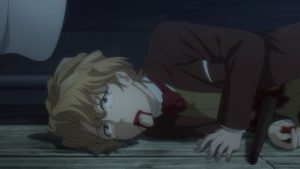
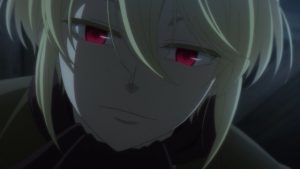
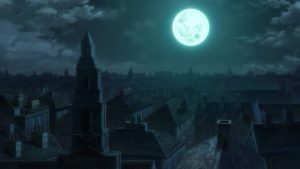
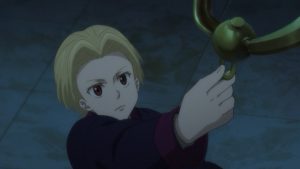


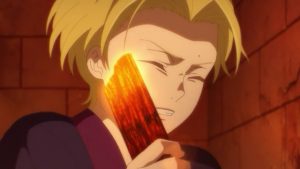
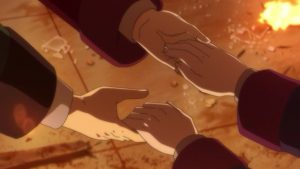

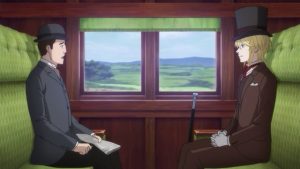


ASade
October 26, 2020 at 10:06 pmI’ve really been looking forward to this review! I picked up the manga when I saw you were covering the anime, and I only just yesterday watched all three episodes of the anime. They did stretch out the first chapter into these two origin episodes, changing some things along the way (in the manga, our William killed the bratty one while Albert strangled the mother…), but the anime has managed the atmosphere quite nicely so far! Looking forward to seeing your reaction to Holmes 🙂
Guardian Enzo
October 26, 2020 at 10:24 pmA warm family home indeed…
Princess Usagi
October 26, 2020 at 11:11 pmSome families always have the “odd one out” that is different from the rest, which seems to be the case with Albert. Talking with “the commoners” and seeing that they are nicer than his elitist family probably set him on the path he took and if his brother got more attention for being the eldest and heir, that also wouldn’t encourage love between them. I imagine, it would be painful living in a house where you are loved for your status and not for who you are or your skills/interests/what you can do (since what you could do was already pre-determined by class) so Albert found it attractive that he could be valued for what he could do for William’s cause. Or, teenage rebellion taken to the extreme, but instead of slamming doors, he burns the door and everything else down with it. Also, from the way the poor people became so fond of William and how Albert was drawn in by William’s intelligence, William clearly has a personality with the charisma and intelligence that draws people in and motivates them, which, as already seen, can be a dangerous weapon. I wonder if Albert will eventually feel guilt over what he did after the adrenaline rush is over or if he remains disturbingly nonchalant about his act, being so caught up in the hype of William. Character psychology and motivations are so fascinating and this episode provided a lot of that to think about!
animealex
October 27, 2020 at 4:30 amHoly Cow! That was an episode. I didn’t expect to see three distant relatives of Johan Liebert in one series.
I’m not easily shocked, but even after last weeks after-credit scene, I didn’t expect, how the family drama would play out. I honestly believed, that a fight with the “real” William got out of hand, the parents became involved somehow and afterwards the three “brothers” burned the manor down to cover their tracks. I didn’t expect cold blooded, premeditated murder. Especially from Albert. I had him pegged down as the most “moral” and normal of the trio; boy, was I wrong! They are all three so far beyond good and evil that it’s not possible to measure them with normal standards, at least for me. Even though I sympathize greatly with their idea, they are ruthless fanatics who will never feel remorse for their deeds, no matter what, and so my sympathy with this trio is very, very limited. If Albert had run away with the other two or perhaps had helped to rob his family blind or something, then yes, I would be fully on their side. But killing your whole family for the abstract idea of a just society is just anathema to me.
OK, enough rambling from me. Just one last thing: The most disturbing part of the whole episode for me was not the gruesome fratricide, or the nonchalance of murdering everybody else in their sleep, but the scene where the two brothers (Louis and “William”) became three brothers. “The family that slays together, stays together” indeed.
Kim
October 27, 2020 at 8:02 amI really do like where this series is going and it reminds me a little of Death Note using evil methods to create perfect world. I just hope it doesn’t end up disappointing me like Death Note ultimately did.
Guardian Enzo
October 27, 2020 at 8:40 amI think the reason DN disappointed almost everybody is the WSJ made the mangaka continue it past what they wanted to be the ending. They may have learned from that, based on the evidence since, but who knows.
Yuukoku is still ongoing in any event. It may disappoint, but at least it won’t be for the same reasons if it does.